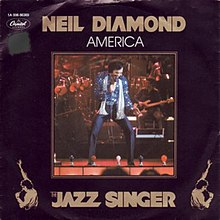
"I'll Be Your Everything" is a song by American pop music singer Tommy Page that was included on his album Paintings in My Mind. Released as a single in early 1990, "I'll Be Your Everything" reached No. 1 on the US Billboard Hot 100 chart in April 1990. The song spent one week at No. 1, thirteen weeks in the Top 40 and was certified Gold by the RIAA. "I'll Be Your Everything" also peaked at No. 31 on the Adult Contemporary chart
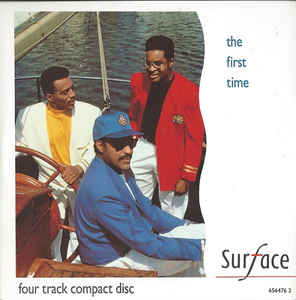
"The First Time" is a single by American R&B/pop music trio Surface that hit number one on the Billboard Hot 100 in 1991 for two weeks, the trio's only chart-topper. The song also spent one week at number one on the U.S. R&B chart and two weeks atop the adult contemporary chart.

"Tell Me a Lie" is a song composed by Mickey Buckins and Barbara Wyrick. Originally recorded by Lynn Anderson for her 1974 What a Man My Man Is album, it was released later that same year as a single by Sami Jo Cole, who took it to number 21 on both of the major U.S. pop charts. It also charted in Canada (#17). Cole's version was also an Adult Contemporary hit, reaching number 14 in the U.S. and number 27 in Canada.

"Bad Blood" is a popular song written by Neil Sedaka and Phil Cody. The song, with uncredited backing vocals by Elton John, reached number one on the Billboard Hot 100 in 1975, remaining at the top position for three weeks. It was certified Gold by the RIAA and was the most successful individual commercial release in Sedaka's career. "Bad Blood" was replaced at the number one spot by John's single "Island Girl".
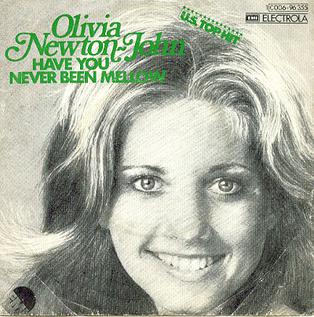
"Have You Never Been Mellow" is a song recorded by British-Australian singer Olivia Newton-John for her 1975 fifth studio album of the same name. Written and produced by John Farrar, the song was released as the lead single from the album in January 1975.
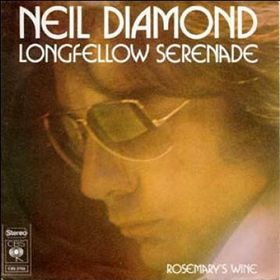
"Longfellow Serenade" is the title of a 1974 song by the American singer-songwriter Neil Diamond. It was written by Diamond, produced by Tom Catalano, and included on Diamond's album Serenade.
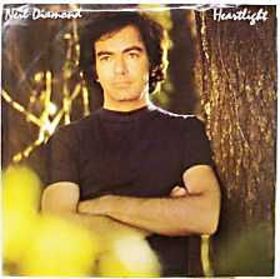
"Heartlight" is a song written by Neil Diamond, Carole Bayer Sager and her then-husband, Burt Bacharach, and recorded by Diamond in 1982. It is the first track on Diamond's 1982 album, also titled Heartlight, and reached number five on the Billboard Hot 100, becoming his thirteenth top 10 hit on the chart. It also spent four weeks atop the adult contemporary chart in late 1982, and was the last of his eight #1s on that chart. Reportedly, it was inspired by the 1982 film E.T. the Extra-Terrestrial, and Diamond allegedly settled with MCA/Universal for $25,000, due to its supposedly drawing on the material of the film.

"Lonely Night (Angel Face)" is a song written by Neil Sedaka. The song was first recorded by Sedaka and appeared as a track on his 1975 studio album, The Hungry Years. The following year the song was made popular when covered by the pop music duo Captain & Tennille, who took their version to number 3 on the Billboard Hot 100.

"(There's) No Gettin' Over Me" is a song written by Walt Aldridge and Tom Brasfield, and recorded by American country music singer Ronnie Milsap. It was released in June 1981 as the first single from the album There's No Gettin' Over Me. Known by many fans by its less grammatically correct title "There Ain't No Gettin' Over Me" — the song's official title appears nowhere in the lyrics — the song became one of Milsap's biggest country hits and his only top 10 pop hit during his recording career.
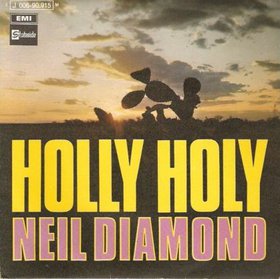
"Holly Holy" is a song written and recorded by Neil Diamond with instrumental backing provided by the American Sound Studio house band in Memphis. Released as a single on October 13, 1969, it was a successful follow-on to "Sweet Caroline", reaching #6 on the U.S. pop singles chart by December. The song also reached #5 on the Easy Listening chart. It became a gold record and then eventually a platinum record.

"Love or Let Me Be Lonely" is a pop song recorded by the soul group The Friends of Distinction and released as a single in early 1970. The song was a multi-format success, peaking in the top 10 of the Billboard Hot 100 at #6 on May 1, 1970 and at #13 on the R&B chart. On the Adult Contemporary singles charts, "Love or Let Me Be Lonely" went to #9. The song is ranked as the 63rd biggest hit of 1970.

"Yesterday's Songs" is a 1981 single by Neil Diamond from his album On the Way to the Sky. The song was a major adult contemporary radio hit, spending six weeks at #1 on the U.S. Billboard chart and four weeks atop the Canadian Adult Contemporary chart. On the Billboard Hot 100, it peaked at #11. On the Canadian pop charts, the song reached #15. "Yesterday's Songs" is ranked as the 77th biggest American hit of 1982.
"The Immigrant" is a 1975 single written by Neil Sedaka and Phil Cody and performed by Sedaka. The single was the second release from his album, Sedaka's Back. "The Immigrant" was dedicated to John Lennon and the immigration problems that he faced. The single peaked at number 22 on the Billboard Hot 100 and spent one week at number one on the Easy Listening chart in May 1975.

"If You Know What I Mean" is a song written and recorded by Neil Diamond. It is a track from Diamond's 1976 album, Beautiful Noise, and was his third number 1 on the Easy Listening chart, where it spent two weeks. "If You Know What I Mean" went to number 1 for two nonconsecutive weeks and peaked at number 11 on the Billboard Hot 100. In Canada, the song reached number 19 on the pop singles chart and hit number 1 on the Adult Contemporary chart.

"Desirée" is a 1977 song written and recorded by Neil Diamond and included as a track on Diamond's 1977 album, I'm Glad You're Here with Me Tonight. The single peaked at number 16 on the Billboard Hot 100 and reached number one on the U.S. Easy Listening chart to become his fifth number one on that chart. The song likewise reached number one on the Canadian AC chart.

"Theme from The Greatest American Hero" is a song composed by Mike Post with lyrics by Stephen Geyer, and sung by American singer Joey Scarbury. It serves as the theme song for the 1980s television series The Greatest American Hero. The track was later included on Scarbury's 1981 debut album America's Greatest Hero.

"And the Grass Won't Pay No Mind" is a song written by Neil Diamond and recorded in 1969 on his Brother Love's Travelling Salvation Show LP. It was also featured on his live LP Hot August Night. Diamond's original became a minor hit in Australia before the song became a U.S. and Canadian hit for Mark Lindsay in the fall of 1970.

"Love in the Shadows" is an uptempo pop song written and recorded by Neil Sedaka. The song became an international Top 20 hit in 1976.

"We're in This Love Together" is a 1981 hit song by Al Jarreau. It was the first of three single releases from his fifth studio album, Breakin' Away. The song was his first and biggest chart hit.

"Don't Throw It All Away" is a song written by British musician Gary Benson and first released by the Shadows on their 1975 album Specs Appeal. Benson released his version as a single later the same year, which reached number 20 on the UK Singles Chart in the fall of 1975.
